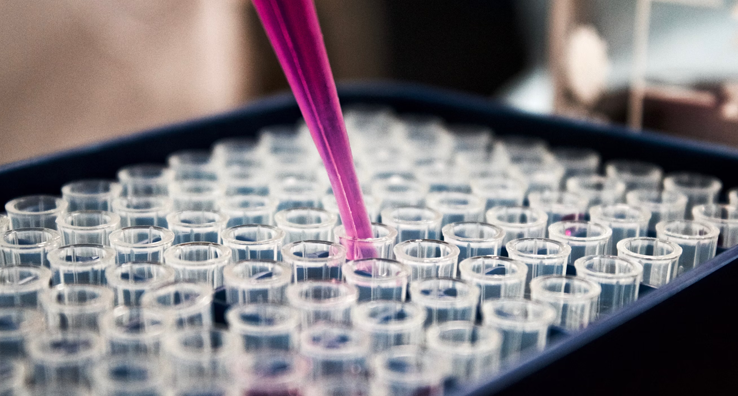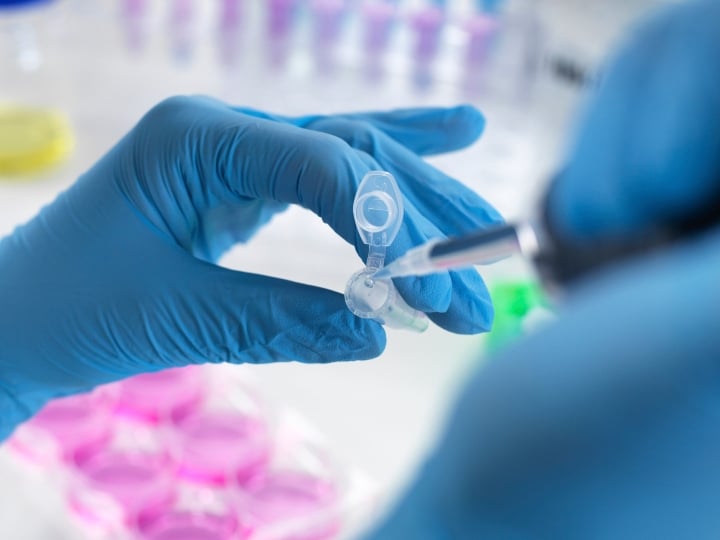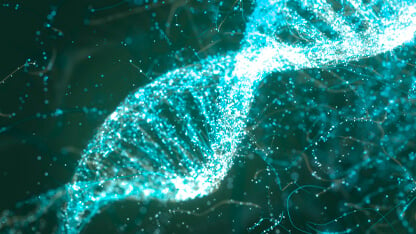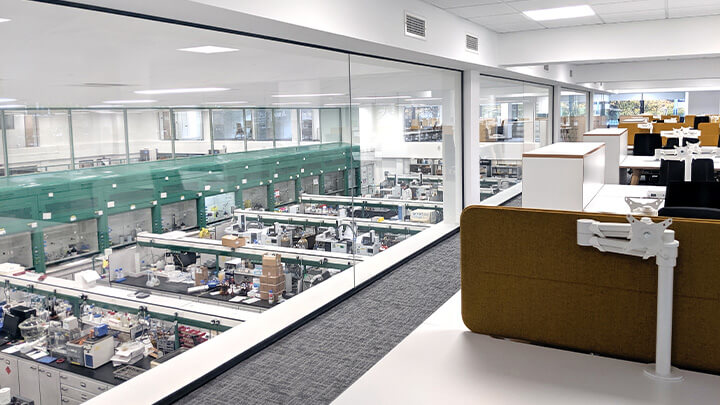Process-related impurities analysis to support bioprocess validation in line with ICH Q6B, through mass spectrometry, spectroscopy and chromatography assays
Effective removal of process-related impurities or process residuals is important to pharmaceutical and biopharmaceutical development. Process impurities are related to the manufacturing process and may include cell substrates (e.g., host cell proteins, host cell DNA), cell culture (e.g., inducers, antibiotics, or media components), or chromatographic media used in purification, solvents and buffer components.
You will require a good understanding of process residuals early on in development to attain a good understanding of your process and to establish acceptance criteria for ongoing testing requirements such as batch release testing. These process-related impurities are typically present in trace levels in challenging sample matrices and so quantification can be challenging.
Our process residual analysis teams follow the ICH Q6B Guidelines to apply a range of highly specific and sensitive techniques which offer robust quantification to support process validation, monitor the batch to batch variation and support GMP lot release, helping you to ensure that products meet specification limits for these process residuals.
Cell substrate-derived process impurities
We utilise PCR or colorimetric methods to quantify the level of any residual host cell DNA in the drug substance or product. Our services can be applied to clearance studies, to demonstrate the removal of DNA.
Cell culture-derived impurities
Cell culture-derived impurities include inducers (such as IPTG), antibiotics, serum, and process enhancing agents (e.g. Glutathione, Dithiothreitol (DTT)). We have a great deal of experience in the development and validation of methods for trace antibiotics such as Kanamycin, Tobramycin, Gentamycin, Amoxicillin, Chloramphenicol, applying highly selective approaches such as tandem mass spectrometry (LC-MS/MS) with Multiple Reaction Monitoring (MRM). We also apply MS techniques to the determination of surfactants and antifoams agents which typically include Triton-X, Tween 20, Tween 80, Pluronics and polyglycol P2000.
Methotrexate is a cytotoxic chemical used in early seed cultures to maintain selective pressure. Due to its toxicity it is vital to ensure removal to extremely low allowable limits. Intertek can develop extremely sensitive LC MS-MS methods which are suitable for even the most challenging of sample matrices.
Process inducers and process-enhancing agents include redox reagents (glutathione), solubilizers (guanidine and urea), processing additives (PEG PPG), residual solvents (phenol, isopropyl alcohol) and chelating agents (EDTA). We have extensive method development experience to overcome the challenges posed by your sample matrices.
Downstream-derived impurities analysis
We provide analysis services to determine downstream-derived impurities such as enzymes, chemical and biochemical processing reagents (e.g., cyanogen bromide, guanidine, oxidising and reducing agents), buffer components e.g. Tris, taurine, formaldehyde phosphate, sulfate, ammonia, cyanide, acetate, citraconic acid, citrate, imidazole, glucoheptonate, sucrose, trehalose, glucose, histidine and glyceraldehyde), carriers, ligands (e.g., i monoclonal antibodies), and leachables from process equipment.
To address residuals from chromatographic media used in purification such as residual solvents (such as DMF, DMSO) and other organic volatile impurities (OVI) we apply pharmacopeia methods such as USP <467> , however, we can also develop bespoke methods suitable to your specific sample.
We have a great deal of experience in using inductively coupled plasma techniques such as ICP-OES and ICP-MS, to determine elemental impurities such as metal ions, inorganic salts and heavy metals such as arsenic.
Process equipment such as single use bioprocessing systems must be evaluated for their propensity to give rise to leachables which may migrate into the final product. Both EU and US regulations clearly require that production equipment should not “present any hazards to the product” and should not be “reactive, additive or absorptive”. Our extractables / leachables experts are able to identify and quantify the substances that migrate into the product from multiple processing materials (elastomeric, plastic, glass, stainless steel or coating components). Our in-house toxicologists perform a comprehensive safety assessment of the laboratory data in order to identify and address potential risks whilst identifying any gaps in your existing data packages.
For particulate contaminants, we have methods for sub-visible and smaller particulates including light obscuration and microscopy.
With a 20 year heritage of supporting bioprocessing validation and biologic product release, Intertek have developed and validated many highly specific and sensitive methods to support our clients located around the world. With experts experienced in the development and validation of a wide range of analytical techniques, our laboratories routinely provide phase-appropriate analytical services which can expedite your process validation and help ensure your products meet specification. Bringing quality and safety to life, we offer Total Quality Assurance expertise to help you to meet and exceed quality, safety and regulatory standards.
Pharmaceutical News & Events
- Determination of Particles in Pharmaceuticals - Article
- Discover our Audit Live Tool for direct access to our scheduled audits
- Extractables/Leachables Lab Tour - Request access
- Medical Device Extractables & Leachables Studies
- Glycosylation Analytical Approaches for Antibody Therapeutics
- Rapid Determination of Low/Trace Level Benzene in Pharmaceutical Excipients and Finished Products
- mRNA Analytics: Capping Efficiency, Sequencing, Poly-A Tail, dsRNA

COVID-19 VACCINE OR THERAPEUTIC TESTING & DEVELOPMENT SUPPORT
IMMEDIATE QUESTION? Ask our experts now
FACTSHEET: COVID-19 Vaccine or Therapeutic Testing & Development Outsourcing
ARTICLE: Repurposing Vaccines for Intranasal Development
WEBINAR: Quality Control Strategy for Vaccine Development
WEBINAR: Repurposing Drugs for Inhaled Delivery
eBOOK: Contingency Outsourcing Solutions



